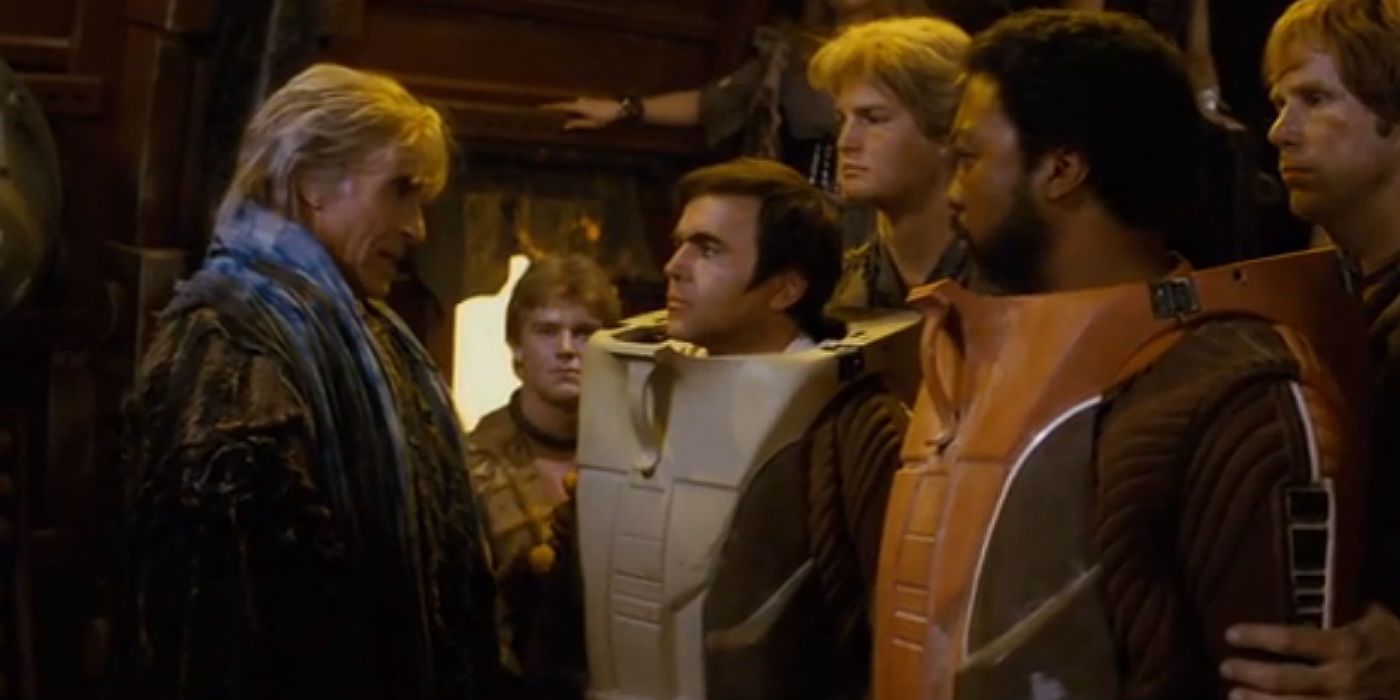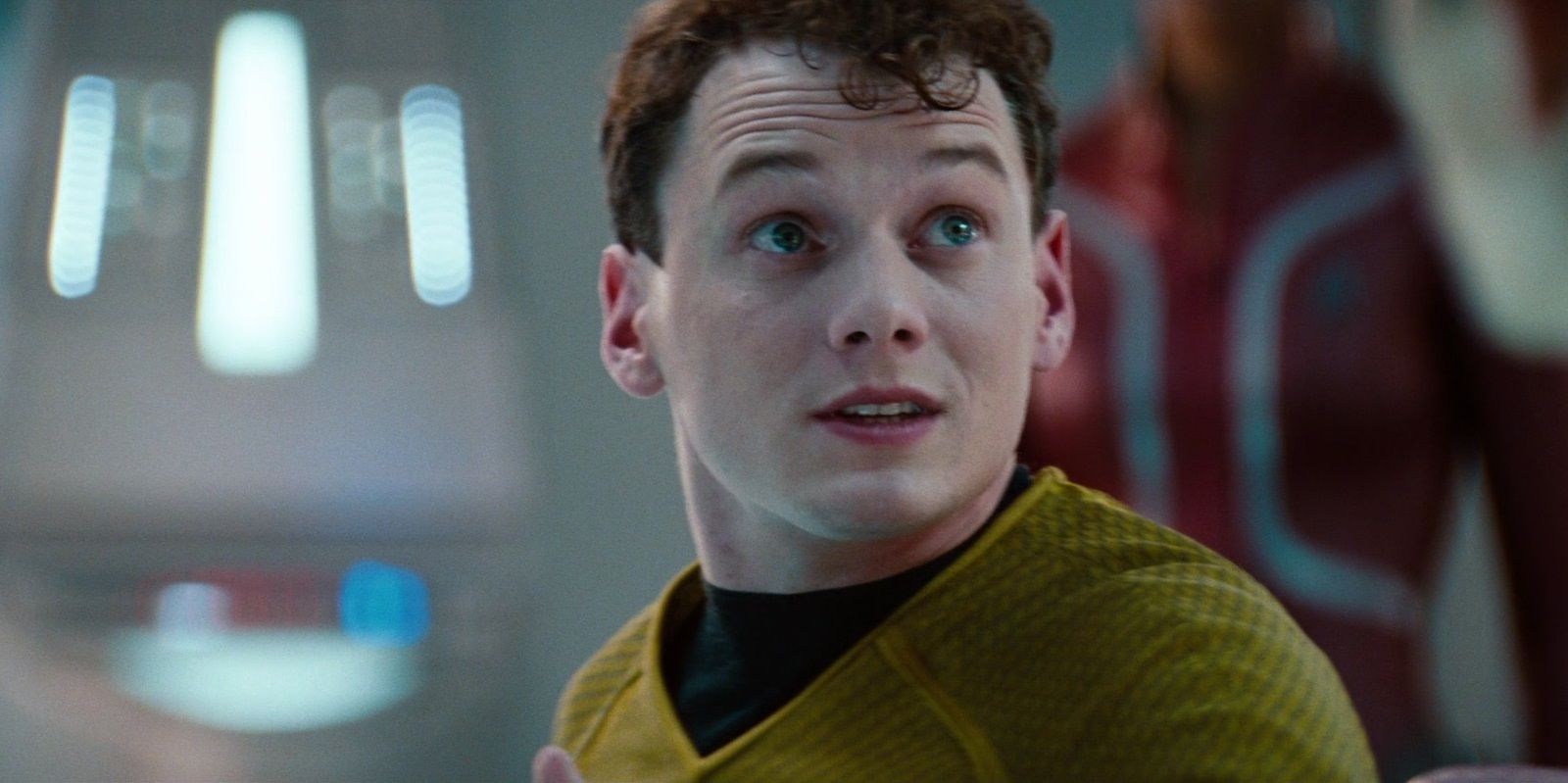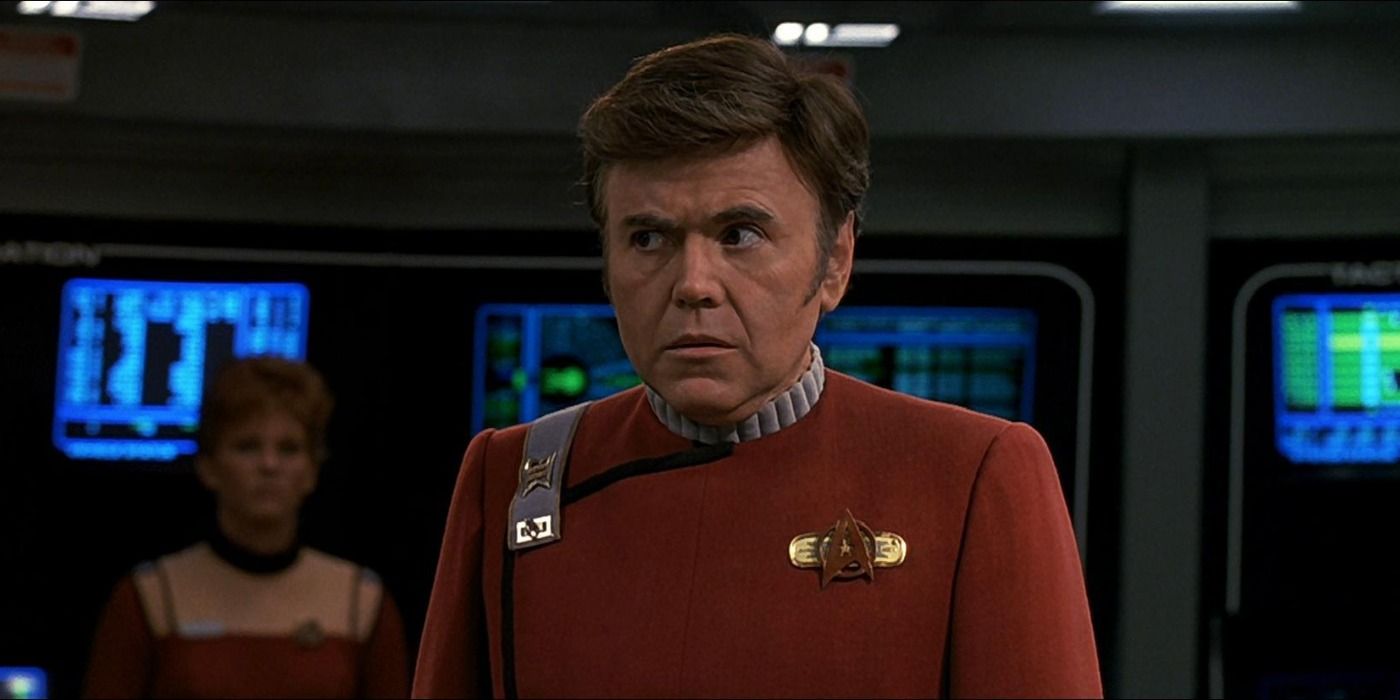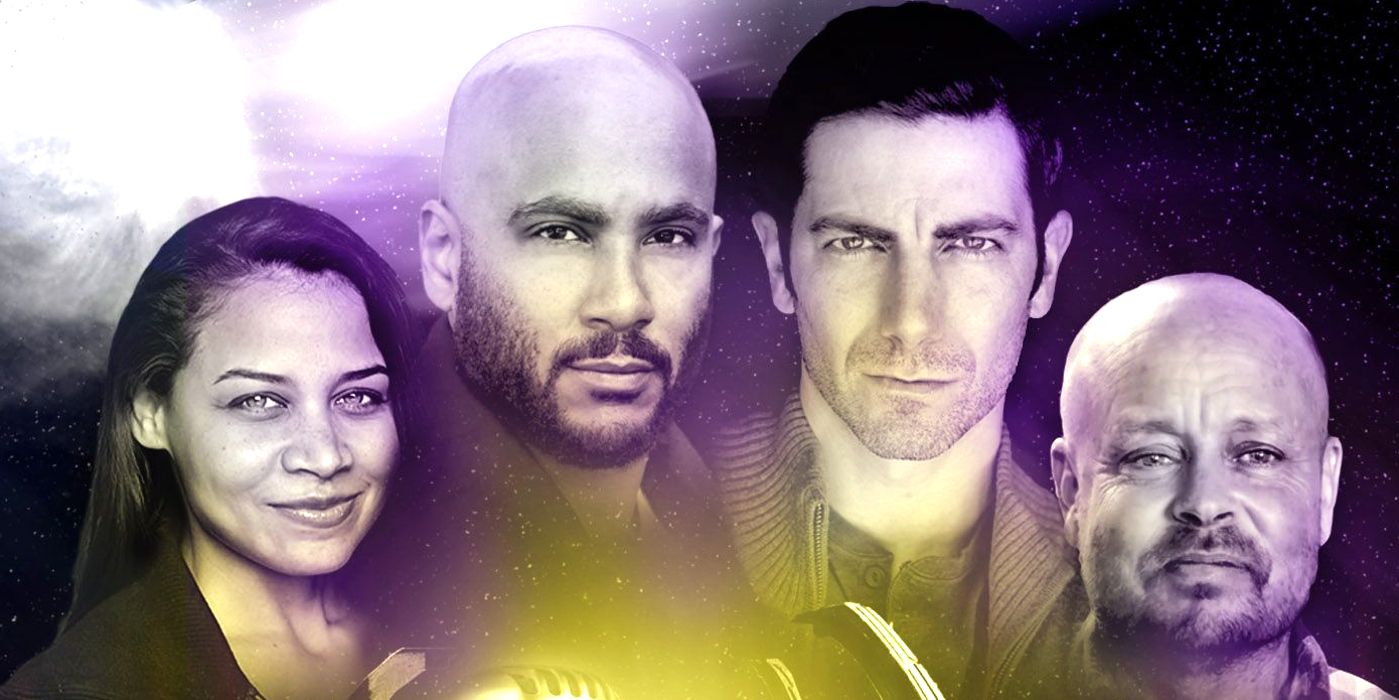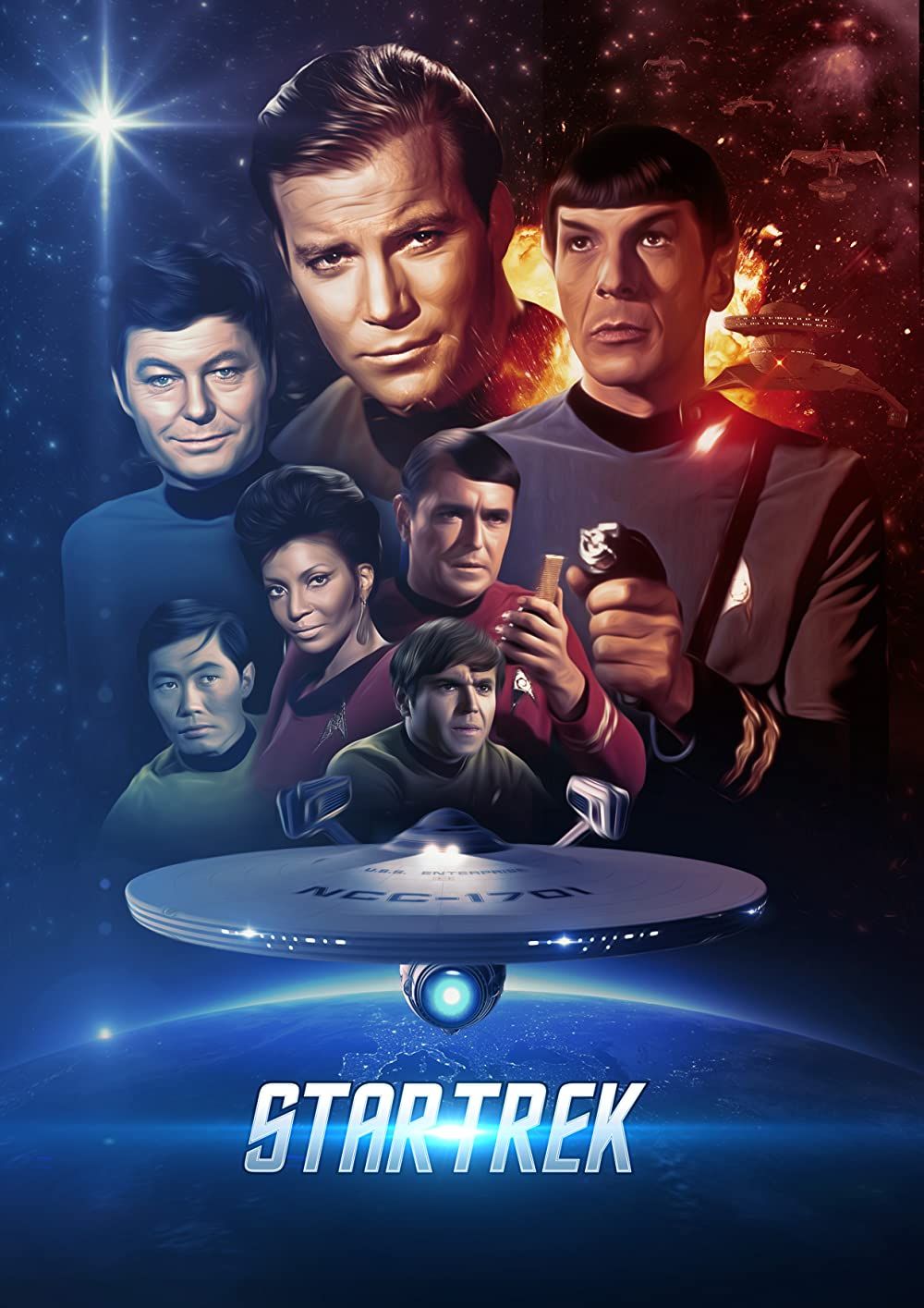Summary
- Star Trek legend Walter Koenig is joining The 7th Rule podcast to review episodes of Star Trek: The Original Series, bringing his witty hindsight and behind-the-scenes memories to the discussions.
- Koenig and podcast host Cirroc Lofton will provide a unique perspective as they both haven't watched the 1960s Star Trek since then, making their reviews intriguing for both new and long-time fans.
- Koenig's season on The 7th Rule will kick off in early 2024, and fans can support the podcast through its Indiegogo campaign.
Star Trek legend Walter Koenig is joining The 7th Rule podcast with Cirroc Lofton and Ryan T. Husk to review episodes of Star Trek: The Original Series. Koenig joined Star Trek in season 2 as Ensign Pavel Chekov, a role he continued in season 3, and reprised in 7 feature films including Star Trek Generations.
Walter Koenig is a beloved member of Star Trek: The Original Series cast, but he hasn't watched his old episodes since the 1960s. Making The 7th Rule with Walter Koenig even more intriguing, Cirroc Lofton of Star Trek: Deep Space Nine hasn't watched the 1960s Star Trek before. Between Lofton's fresh perspective and Koenig's witty hindsight and behind-the-scenes memories, The 7th Rule will be a must-watch weekly event for Star Trek fans when Walter Koenig's season kicks off in early 2024. Fans can support The 7th Rule through its Indiegogo campaign.
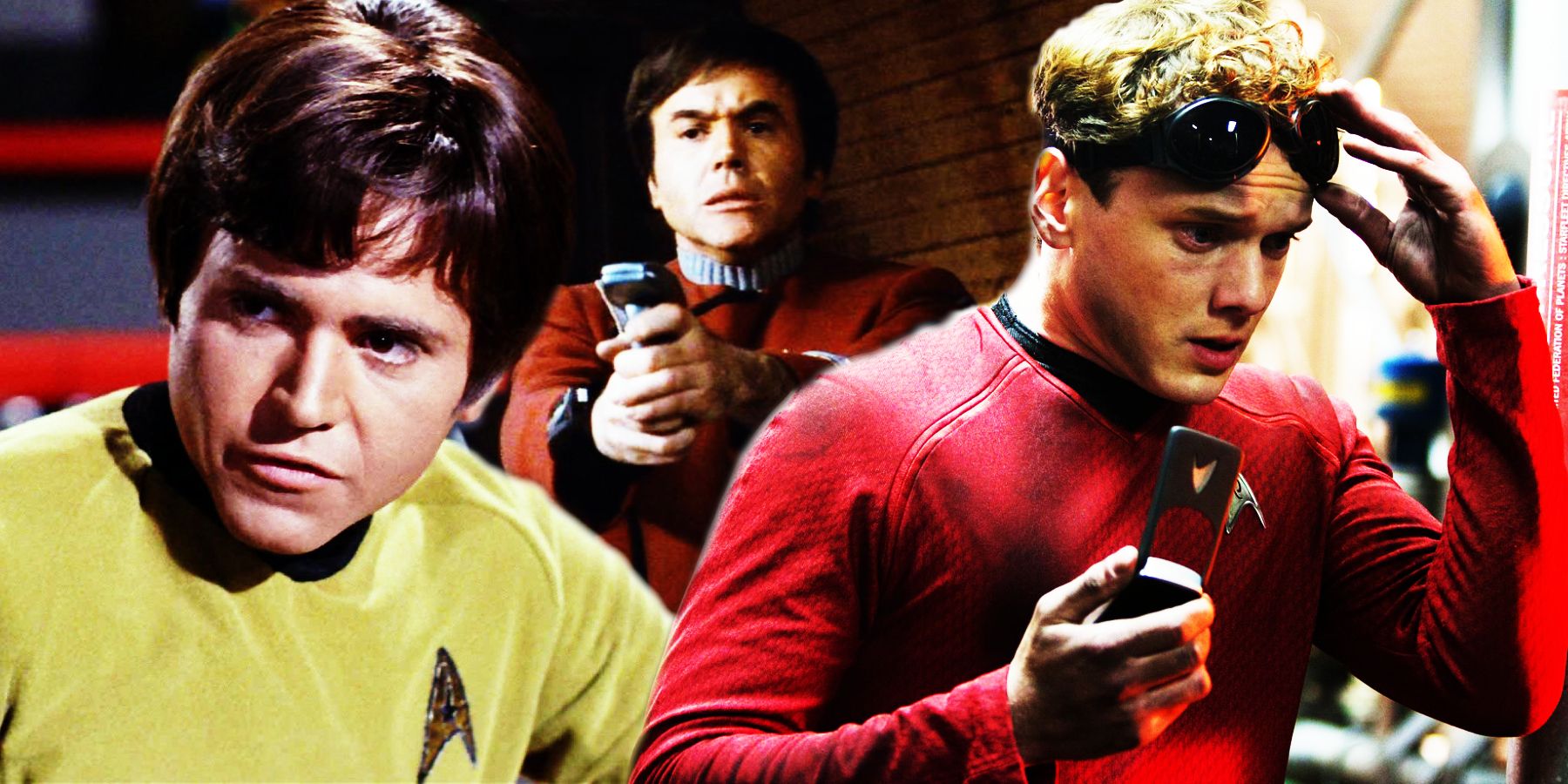
Every Job Mr. Chekov Had In Star Trek
In both Star Trek: TOS and the Abrams movies, Pavel Chekov was a "Russian whiz kid" who fulfilled a number of duties throughout his Starfleet career.Screen Rant had the pleasure to interview Walter Koenig about how he joined The 7th Rule, his favorite moments playing Mr. Chekov in the Star Trek TV shows and movies, meeting the late Anton Yelchin, who played Chekov in J.J. Abrams' Star Trek trilogy, and Walter's overall Star Trek memories.
Walter Keonig Talks About Joining The 7th Rule Podcast & His Star Trek Memories
Screen Rant: We should start off with the main reason why you are very kindly here for this interview. We are here to announce that you, Walter Koenig, are joining The 7th Rule podcast with Cirroc Lofton and Ryan T. Husk. And you're going to review episodes of Star Trek The Original Series. That is amazing. Tell me, how did this come about, you joining The 7th Rule podcast? How did they talk you into this?
Walter Koenig: It's the mail. They've gotten thousands upon thousands upon thousands of letters. It was just to cease the mail. Two postmen in Ryan's neighborhood have threatened to quit as a consequence of lugging all this mail. So Ryan said, "Well, what can we do to keep the postman from quitting?" And other than firing this guy who's the head of the Post Office service, which could be a good idea, this is what they came up with.
Now you joined Star Trek as Mr. Chekov in season 2. So you're not in the first 20 or 30 episodes. Will you be rewatching and reviewing season 1 as well?
Walter Koenig: No, no, no, no. In clicking my remote, my brand-new remote that I was using first back in the 60s. I came across Star Trek. I saw the styrofoam rocks. And I said, "Forget about it!" And I clicked off. So I didn't give it a chance.
Producer Ryan T. Husk confirmed The 7th Rule with Walter Koenig will begin by reviewing season 2 of Star Trek: The Original Series.
There's something I've actually always wanted to ask you. In Star Trek II, you have that amazing scene where Khan puts the eel in your ear. Khan recognized Chekov and said, "I never forget a face." But you weren't in season 1. I read somewhere you raised this point while you were shooting the movie. You pointed this out?
Walter Koenig: No, no, I was. I'm sorry, John. I was in Star Trek its first season. Chekov was working in the boiler room. And he was so sick with a condition called malapropski's malady. He was hidden in the bathroom and there for hours and hours. Where Poor Mr. Khan's genetically engineered kidneys about to explode pounded pitifully on the bathroom door begging, begging to be let in until finally the door opened, Chekov stepped out, Khan grabbed him, and said, "Your face! I will never forget." That's the truth. So help me.
Well, that explains everything.
Walter Koenig: You know, there is an interesting little anecdote that goes with this story, which is fairly fresh. That story is so old. God, it's got whiskers on top of whiskers. But a young man came up to me, couldn't be more than 20 or 21, and he heard this story I just recited to you. And he says, "Is it true?" And I said, "No, no, it's not true. I made it up." And my hand to God, John, he stared at me and said, "Well, I'm going to consider if canon." And he walked away. For him, it all happened. So who's to say.
A good story should just be canon if it's a better explanation of what actually happened. So when was the last time you watched your old Star Trek episodes? Has it really been decades or have you come across it every now and then and watched them?
Walter Koenig: No. I did watch the Picard episode. Because my voice was on it. And I thought it was a good episode. I thought it was well done. Innovative, but what's his name, Picard? What's his name?
You're talking about Patrick Stewart?
Walter Koenig: Yes! Thank you. He's a good actor. He's really good. Very dimensional, very layered. And it was a pleasure watching him perform. I liked everybody else on the show too. Todd [Stashwick], who was on Picard, is my neighbor. Literally, they live two blocks away. And we met walking my dog when I still had one. And I got the watch that episode of Picard at his house with Terry [Matalas], the showrunner. So that was fun. I don't know what it means and why I'm blabbering about it. But there it is.
It was great. It was amazing to hear your voice and to hear Anton Chekov, who I assume is Pavel's son or grandson. Part of that legacy.
Walter Koenig: I met him. I met Anton. Anton Yelchin. Very bright, delightful young man. Very talented. My God, in the short time he had, he did several folds as many jobs as I ever had. So you've got to applaud his talent. Very, very sad.
Yeah, tragic. We lost him far too young. And both of you are the only two people to ever play Pavel Chekov, at least in canon. And so, it's still, it's still a very rare thing to be someone who played Chekov. Do you have any favorite episodes of your old show? Does anything come to mind when you think about the old Star Trek?
Walter Koenig: Yeah, the ones were generally where I went to the planet. That meant I had some action, that meant that I was involved in the story to some degree. When Chekov would actually volunteer something that was personal to him. Nothing deeply personal, but we still invested in him more as a character in the story. And that's what we all want as actors. We want to be thoroughly a part of what's happening so the audience can identify with us, so they can root for us, so they can imagine themselves playing those roles. So yeah, when I went to the planet.
"Spectre of the Gun" was my favorite. And it's one of those interesting little stories because sometimes the best things are by mistake, or an accident or unintended. If there had been more money to shoot that episode, it may not have been shot that way. But because the network was complaining about the money that Star Trek was spending, they decided to make the whole episode about an illusion, that it wasn't really happening. And if you knew it wasn't happening, then it wasn't real. So we could make it like doing animation. You can do so much more because it's animation. Well, if it's an illusion, you can have any kind of preposterous incident or occasion, and then in the end say, "Oh, well didn't really happen. It was in our minds." And that's what happened there. The premise being that if you didn't believe that the gunfight at the OK Corral was about to happen, then it didn't. But if you believed it, then it was, Of course, the only thing that has to be acknowledged is that if we believed it, which we did up to a point, then when Chekov was shot, he ain't coming back. Because we don't know then at that point that it's an illusion.
I went to the editor, I don't know what self-destructive impulse captured me, but I went to the editor and I said, "You guys know, that Chekov can come back from the dead because he didn't know that it was an illusion." And I waited for them to give me some explanation that would appease me. [that] would not offend my sense of logic and story structure, but at the same time, be acceptable so that I could come back the next week and say, "Warp factor two, Captain." And the editor's response was, "Yeah, we thought about it. We said screw it." (laughs) They just didn't really deal with it. What they said was that it was in an addendum. And this is something that a lot of people might not know because I didn't know. Evidently, they have Chekov saying the only thing that was real to him was the girl. Nonsense! How can one thing be real to him, and the other thing not be? But the way they explain why Chekov is still alive. So that's an interesting thing you didn't know before.
No, I actually didn't.
Walter Koenig: John, you didn't know it. And I'm very surprised, a little disappointed, a little disillusioned that you didn't know that.
I'm here to be enlightened by you, sir.
Walter Koenig: Yes.
Was that your favorite performance as Chekov? Is there another scene that you're that you're proud of? Something that you did that sticks out in your mind?
Walter Koenig: I don't know. I don't know. You know, we had two directors, Mark Daniels, and we had Joe Pevney in the second season. Joe Pevney directed a series of the Alfred Hitchcock hours that I did a guest lead in opposite James Caan, who I went to school with. Jimmy and I. He was a good guy, I was the bad guy. Joe Penvey kept telling me I was going to be great. I was going to be a star. He kept telling me that. It was nice to hear. I didn't really believe it, but it was nice to hear. So what do you know, I come in for the audition, there's Joe Pevney. And I thought, "Well, this helps. This definitely helps." But Mark Daniels was there. And from the first moment I met Mark Daniels, he appeared to me, and I emphasize and underscore this, [he had] a sour disposition. That was my initial reaction. Inaccurate, by the way. And when we started shooting the shows, [I] never got a smile out of him.
In several of the [Star Trek] episodes, there was an attempt to give Chekov have something light to do. "Oh, yeah, it was invented by a little old lady from Leningrad," or something, you know? And Mark Daniels never smiled. So I think he hates me. Actor. Big letters. NEUROTIC. (laughs). INSECURE. But then, we did "I, Mudd." And I had a line, I don't remember what it was. A line back. And I say something wistful about these lovely ladies or whatever it was. And I looked up, and there's Mark Daniels smiling! And I think, "God! I did it! I got him to smile. This is the best thing I've ever done!" That's my answer.
That's an amazing answer. One of my favorite moments you played as Chekov was actually Star Trek IV when you had to go to the hospital. And you were being wheeled around the hospital. And the whole time you were dreaming of yourself as Captain Pavel Chekov. I loved that. I thought the comedy in that movie was so great. You were on top of your game,
Walter Koenig: It was my best film that I enjoyed the most. I thought it was also the best ensemble work. Nick Meyer made a concerted effort to involve everybody. Unfortunately, George [Takei] got screwed because the sun went down. and we had a very recalcitrant little kid who wouldn't play opposite him the way he was supposed to. George had a lovely scene, one by the way that I invented for him and told him how it should work. And he would have done it beautifully, but the kid wouldn't do it, wouldn't do it. And then finally, we were going to get his brother to do who was older. And as soon as he saw that his brother was going to do it, he says, "Okay, I'll do it." At which point the sun was down, and we never got back to shooting it.
But yeah, I thought the scene in the truck between Leonard [Nimoy] and Bill [Shatner], it was classic. It was just classic. It was so well done. A great couple to work a comedy scene bouncing off each other. And then it was an important story. It was an important story because we were getting back to what supposedly inspired Star Trek, to begin with. You know, humanitarian issues, civic issues, the environment. It was a message story but told so well that you never felt burdened by the message, you're just receptive to it. And so, in my estimation, for what it's worth, it's probably worth nothing, I found that was the best of the Star Trek shows that we did.
I would say it's definitely up there. It is, at least, one of the most enjoyable films. It's probably the most entertaining flat-out straight-through. It is a joy to watch. It's still one of my all-time favorites.
Walter Koenig: I wasn't talking about the other series. I'm just talking about Star Trek. Our Star Trek. Okay. I haven't seen the series.
Pavel Chekov's story was never really finished. I know you played Chekov in fan projects like Star Trek: Renegades. But in terms of the official canon. Star Trek Generations was the last time you played Pavel in a film. So I know you're also a writer. How do you end Chekov's story? Have you ever thought about what really happened to him? How his life turned out?
Walter Koenig: It's actually a very good question. It's a very pertinent question. Because when I got the script for Star Trek VI, I was desperately disappointed. I thought that each of us, Nichelle [Nichols], George, Jimmy [Doohan], and myself, each should have a personal moment as the character. You get to know how they respond, how they deal with crises, with emotional situations. Not with life and death. Life and death is easy. What's going on inside? How do you evaluate the circumstance? How does it reflect on you? How do you reflect on it? Who are these people? Who are these people, really?
Not just that they are a composite group. It's good, it's certainly commendable that they are different nationalities, different races. That's commendable, and then they can get along together. But that's almost by intimation. It's not by discourse, it's not by communication. We don't see them put into a conflict in a situation where they have to either, you know, what if? What if Scotty had to save Uhura or Chekov? And there is some question about why he might not save Uhura. I mean, that's never going to happen on our show. But what if there was if there was a question, and he does it anyway? And when you get to see how he deals with these kinds of conflicts, you see. Oh, that's the kind of guy he is. When push comes to shove, he's there. He's there for you. And you get to see what he is. That's the kind of insight that I would have loved for these secondary characters to have had, that you could really root for them.
You know, Bill, Shatner made a very, very accurate comment. At the time, it felt kind of mean-spirited, but he's absolutely right. He was absolutely right. We were secondary characters. We were subordinate characters. We were at the end of the episode titles characters, you know. And if we had not gone out on the road, if we had not gone to conventions where 8000 people piled into a hotel in New York, we hadn't realized, or the audience hadn't realized how much they cared for us. And they did in the exchange of ideas between themselves. Then we would never have realized that we were important to the show. Or maybe we weren't until they gave us the stamp of approval. But once we got the stamp of approval, we thought we deserved more. And we're actors. We all think we deserve more. And in our case, they're all talented people. They did deserve more. But the audience gave us the hint. They said, "You guys are better than just that." And so we started complaining. And so, we took some exceptions to the way we were dealt with. But it was disproportionate to our contribution to the show. You know, it was expositional. We gave you plotlines, [but] we didn't give you how we were dealing with situations, how much we hurt, how much we rejoiced, how much we cared for each other, what sacrifices we would make. Those things were not the part of the other actors, and I'm looking at the picture of them all. And the audience has so come to love them.
I mean, when DeForest [Kelley] was alive, he was Grandpa to a lot of fans. Jimmy became uncle. And I remember how much they loved Jimmy. And so it goes with Nichelle and George. So we gave them the gift of our unadulterated, undiluted joy and enthusiasm. Having given them that, then the people who created Star Trek had to acknowledge that to some degree, and make these subordinate characters a little bit more important than they were. They still could have done more. I think Jimmy is a wonderful actor. I don't think you got to see him as good as he is, or was. A very versatile actor. And I've got to rush to do this because I almost forgot and, and shame, shame! I've got to acknowledge the writers. The writers are the ones who dimensionalized the characters as much as they were dimensionalized. They made it possible for us to breathe, and they're super important to the whole concept of Star Trek. Writers frequently did not get the recognition they deserved. Anyway, I'm just rambling God Almighty that's what happens when you turn 87 years old. (laughs)
No sir. You have amazing points to make. You know, if your show were made today, your characters would all have storylines and be absolutely fleshed out.
Walter Koenig: Absolutely.
That's what we're doing now in the current show. Strange New Worlds, for instance, every character is fully realized. So yeah, it is a shame that Chekov, Sulu, Uhura didn't quite get that back in the 60s, or even in the films, as you pointed out in Star Trek VI.
Walter Koenig: That's very true, but also, the times are changing, and you have to look at things from the perspective of when they occur. Now, you know how many people read for Chekov, a part that is known [worldwide]? I mean, I've been to Russia, to a fan convention in Russia. People all over the world. Two people read for Chekov, me and another guy. [It] wouldn't happen today. Today, they'd have you come in 7,8,9 times, you know. Because they know the significance of those roles, and they know they're going to have an effect, and a universal audience is going to be there to embrace that.
And when we did it in the 60s, he was just the character after the credits, he wasn't one of the stars. So there's that to be said, as well. And I got to be involved with this whole thing for all these years and have so little competition to get the part. How many other actors do you think could have done it or done it better? Hundreds! (laughs) Well, I know they could. I think I'm a good actor. I'm a good actor. But, you know, I don't stand on the mountaintop. So anyway. (laughs) I'm done with that.
About The 7th Rule
The 7th Rule is a Star Trek podcast founded by Deep Space Nine's Cirroc Lofton and Aron Eisenberg, and producer Ryan T. Husk with Malissa Longo. After reviewing every episode of DS9, The 7th Rule now reviews every episode of Star Trek: The Next Generation.
Walter Koenig joins The 7th Rule to review Star Trek: The Original Series season 2 in 2024.
Check out our interview with The 7th Rule's Cirroc Lofton
Source: Screen Rant Plus


